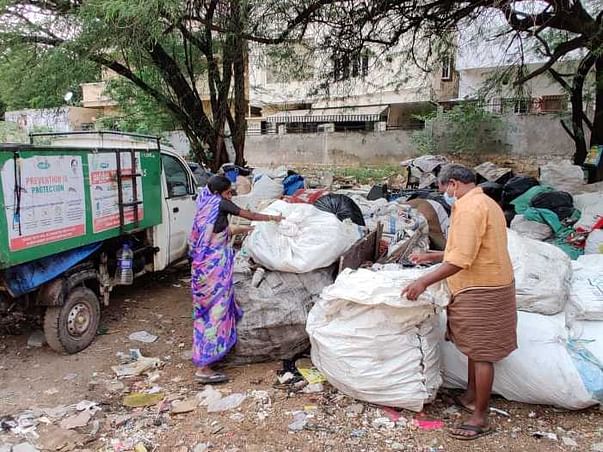By Joel Lazarus
In the realm of social action, and thus in the realm of development, the element of unpredictability reigns. A critical history of development is a history of the intended and unintended injurious consequences of interventions. The path to hell is truly paved with intentions, bad and good. But if one is to act in the world then one must set intentions. The problems begin when intentions are shaped according to the aim, conscious or otherwise, of objectification – of treating others as objects or, in Kantian terms, as means rather than ends.
Conscious of this troubling history, we have founded our development project, WorkFREE, on intentions of the most minimal and democratic kind – intentions that espouse and embody Kant’s categorical imperative; intentions that not only acknowledge but embrace unpredictability by seeking to cultivate and harness that mysterious, even mystical, element by which unpredictability is understood in complex system theoretical terms – ‘emergence’.
WorkFREE is a five-year project funded by the European Research Fund. We are a team of Bath research staff, students and administrators, working alongside research and practitioner NGOs in India. Montfort Social Institute (MSI) is our local NGO partner that is delivering the WorkFREE intervention in the field – the slums of Hyderabad.
We are working alongside communities living in these slums to explore empowerment and transformation through a combination of ‘Unconditional Cash Transfers’ (UCTs) and Participatory Action Research (PAR). The 466 families that make up these communities are engaged in various kinds of ‘indecent work’, particularly waste picking and collection, construction work, domestic service, and sex work.

Our intentions are indeed minimal and democratic. They are:
- Create time - From October this year, everyone aged 16 and over will receive a monthly UCT; enough money to be able to say no to their ‘indecent work’;
- Create space - Use the time created for the communities by the UCTs to create and facilitate space for them to come together to explore their lives and develop new ways of relating and of generating livelihoods.
The decision to make our cash transfers to the communities unconditional and universal was easy to take. First, imposing conditions on recipients or dividing communities into those who receive and those who do not reeks of the very objectification I outlined above. Research literature documents the troubling consequences that have followed such conditions and divisions. As for our PAR intervention, we believe our intentions are truly radically democratic. We are eschewing any problem-solving agenda for what we call a ‘relational approach’ to community work in which we focus primarily on cultivating a depth and quality of relations between community participants needed for them to transcend a consciousness of fear, separation, and scarcity in order for imaginative, transformative solutions to emerge from a consciousness of connection and abundance. Our only significant imposition here is a needs-based framework, i.e. our insistence that human beings have needs and that focusing on needs - how they are/are not currently met, what it would look like if they were, and how to get from here to there – is the best way to support our community partners’ process of empowerment and transformation.
And then unpredictability struck – not as a consequence of an ill-fated intervention, but in the form of a global pandemic. Our partner communities, who face such hardship at the best of times, are experiencing untold misery as Covid hits and work dries up. How could we in the Bath side of the WorkFREE team respond to come to the aid of our MSI colleagues and partner communities? We decided to launch a fundraising campaign aimed at raising £45,000 for MSI which would be used to purchase and distribute essential kits to these 466 families for three months. The kits contain basic dry food rations, protective equipment, and medical supplies.
I share Oscar Wilde’s view that ‘charity degrades and demoralises’. At the same time, one has to act in response to the world as it is not how one wants it to be. We believe that WorkFREE’s combination of money and dialogue can help our partner communities’ to meet their full spectrum of needs, material and non-material. As such, we feel that we might be able to offer a model for empowerment and transformation that could be used elsewhere and, in a small but significant way, point to a world beyond charity. Nonetheless, right here and right now, we are asking for help to meet the immediate needs of vulnerable and neglected communities in great suffering. We see this not as charity, but as an act of solidarity.
If you can help, please donate to and share our fundraising campaign. It really will make a huge diference to the lives of these families.
Respond